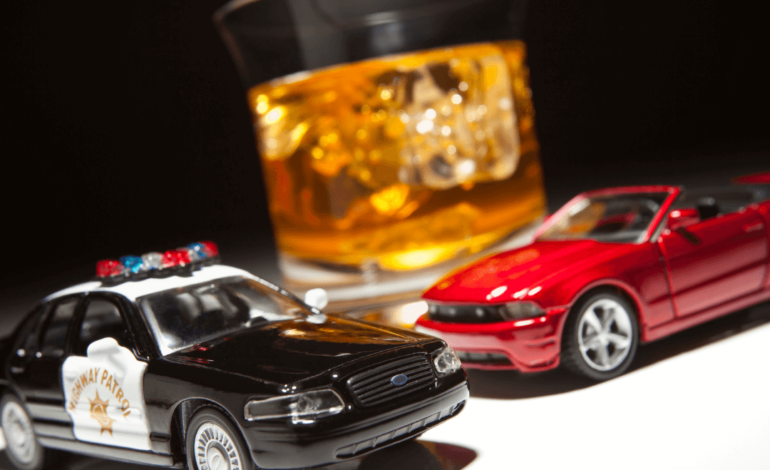It all seemed like such a fun time, you met a few friends at a local bar to watch a March Madness game and only had a few drinks, right? You feel good and decide to head back home. That’s when it hits you and you hear the sirens behind you and your heart starts to race because you know what’s going to happen next. It may not even be the first time this has happened to you. This scenario plays out day after day due to people celebrating with alcohol and then driving home impaired. However, DUIs happen (much more than they should) throughout the entire year.
During this past 2021 New Year’s Eve alone, California Highway Patrol officers throughout California made 263 arrests for DUI, nearly an 8% increase from the same time last year.
An alcohol-related death occurs every 52 minutes, according to the NHTSA
Drunk driving causes more than 10,000 deaths every year, about 1/3 of all traffic-related deaths
Impaired driving, also known as drunk driving or driving under the influence (DUI), is a serious problem in the United States and tends to rampantly increase around the holidays. Impaired driving includes driving under the influence of any drugs or alcohol or being distracted by cell phones or other electronics. Many assume that driving under the influence (DUI) means drunk driving. Although most DUI tickets and accidents are alcohol-related, substances such as prescription pills, sleeping pills, marijuana, and illegal street drugs can also inhibit your driving and result in a DUI offense or even worse, an accident. Prescription drugs such as opioid painkillers and “nerve pills” (benzodiazepines), although maybe legal and written in your name, are prohibited from using if you are operating a motor vehicle or heavy machinery. In other words, it does matter if the drug or medication is legal or illegal. If it impairs your driving, you are driving under the influence.
What is alcohol intoxication?
Alcohol intoxication occurs when individuals consume enough alcohol to raise their blood alcohol concentration (BAC). The higher your BAC, the more intoxicated you become and the more likely you will develop symptoms such as poor decision making, slower reaction times, disorganized speech, loss of impulse control, and slowed motor skills. It is possible to experience “blackouts,” where you do not remember any events when intoxicated if you consume enough alcohol. A BAC of 0.08 or higher is the legal limit to operate a motorized vehicle and will result in a DUI.
How can a DUI affect your life?
It only takes one time and one drink or one pill, meaning that you do not have to be diagnosed with an alcohol use disorder or have a previous history with addiction to be charged with a DUI. A DUI can negatively impact your life on many levels, and you most likely will have to pay a hefty fine upwards of $10,000, go to court, participate in community service, have an interlock ignition device that requires an individual to blow into a device before their ignition can start, and join an alcohol support group. You may even risk jail time, depending on the severity of the DUI and if you are a repeat offender. These charges and consequences are public records, meaning that anyone can have access to them. Driving under the influence is not only dangerous to yourself but dangerous to others on the road, potentially resulting in accidents that can result in injury or loss of life. Driving under the influence is dangerous because it results in slower reaction times, poor hand-eye coordination, and lowers inhibitions, resulting in riskier behaviors such as speeding.
Getting the facts on driving under the influence
Every day, 28 individuals in the United States die in motor vehicle crashes that involve an alcohol-impaired driver. This is one death every 51 minutes.
The yearly cost of alcohol-related crashes totals more than $44 billion. Drugs other than alcohol (legal and illegal) are involved in about 16% of motor vehicle crashes.
13% of nighttime and weekend drivers have marijuana in their system. Studies show that the average driver under the influence has driven intoxicated at least 80 times before their first arrest.
Approximately one-third of individuals driving under the influence have engaged in impaired driving in the past.
On average, each year, 30 million Americans drive under the influence of alcohol, and 10 million Americans drive under the influence of illicit drugs.
Defining alcohol use disorder
Driving while intoxicated and getting a DUI does not necessarily mean you have an alcohol use disorder, but it may mean you have an unhealthy relationship with alcohol. Alcohol use disorder (AUD), also known as alcohol addiction, is a medical diagnosis that is defined by the uncontrollable urge to use alcohol despite the negative consequences alcohol has on your life, such as getting a DUI. Alcohol use disorder affects every aspect of an individual’s life, including social life, personal life, and professional life. It can often result in legal troubles, broken relationships, job loss, financial hardships, and emotional and mental turmoil. Individuals with an alcohol use disorder (AUD) cannot cut back to abstain from alcohol on their own and usually need to enter an addiction treatment program to safely withdraw from alcohol and receive the treatment they deserve.
Signs and symptoms of alcohol addiction
If you or a loved one is possibly struggling with an alcohol use disorder, below are the warning signs to look out for:
The inability to control your alcohol consumption
The desire to quit drinking but unsuccessful attempts to do so
Failing to fulfill major obligations at work, school, home, and in your personal life.
Drinking alcohol while in dangerous situations such as operating a motor vehicle.
No longer engaging in hobbies and interests because of alcohol consumption.
Experiencing withdrawal symptoms.
Developing a tolerance to alcohol.
Urges to cravings to drink alcohol.
Seeking help for alcohol use disorder
Driving under the influence is a red flag that you are misusing alcohol, and you may even have an alcohol use disorder. Although DUIs are most common during the holiday season, they happen throughout the rest of the year. If you or someone you know is driving while under the influence, it may be wise to contact an addiction treatment specialist, especially if you cannot cut back on alcohol use by yourself.
AKUA Mind and Body is a full-service addiction and mental health treatment center with locations across California. We specialize in treating individuals struggling with alcohol use disorder and co-occurring disorders. We offer MAT combined with psychotherapy approaches in all levels of care, ranging from residential settings to outpatient treatment. We pride ourselves on having a compassionate and knowledgeable treatment staff who cares about each client and family.
Alcohol Abuse & Alcoholism Treatment in Newport Beach: How To Stop Drinking




